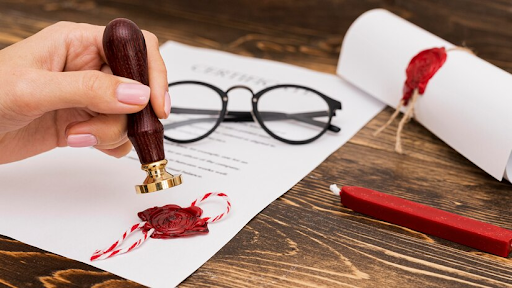The Deposition Blueprint: A Comprehensive Guide to Legal Discovery

In the difficult internet of criminal complaints, few equipment wield as much energy and influence because of the deposition.
A pivotal level in the pre-trial discovery process, depositions serve as a cornerstone for constructing and shaping felony strategies.
Yet, to harness their complete capacity, lawyers ought to navigate a complicated panorama of procedural guidelines, strategic issues, and moral responsibilities.
Understanding the Deposition Process
The deposition technique is a formal process in which sworn testimony is obtained from witnesses outside of court docket.
Typically carried out inside the presence of a court docket reporter who transcribes the court cases, legal depositions serve a couple of functions, inclusive of gathering evidence, assessing witness credibility, and retaining testimony for trial.
Understanding the basics of the deposition procedure is critical for attorneys embarking on the journey of legal discovery.
Preparing for Depositions: The Foundation of Success
Preparation is the cornerstone of successful depositions. Attorneys need to conduct thorough studies, evaluate applicable documents, and increase a strategic plan for questioning witnesses.
This guidance entails identifying key problems, waiting for capability responses, and formulating probing questions designed to elicit valuable records.
By investing effort and time in pre-deposition instruction, lawyers can lay the groundwork for a a successful deposition approach.
Crafting Effective Deposition Questions
Crafting powerful deposition questions is an art shape that requires precision, readability, and strategic cause.
Attorneys should tailor their questioning to elicit unique records applicable to the case, at the same time as also preserving a flexible approach to adapt to witness responses and developments for the duration of the deposition.
By asking open-ended questions, probing for information, and carefully paying attention to witness testimony, attorneys can uncover treasured proof and lay the foundation for trial approach.
Managing Deposition Dynamics
Managing deposition dynamics is an important issue of engaging in powerful depositions.
Attorneys should manage the court cases, assert objections when appropriate, and navigate tough conditions with professionalism and poise.
Building rapport with witnesses, establishing a respectful ecosystem, and fostering open communique are key techniques for coping with deposition dynamics and maximizing the effectiveness of thinking.
Ensuring Accuracy and Integrity
Documenting deposition testimony is essential to preserving the accuracy and integrity of the record.
Attorneys ought to work carefully with courtroom newshounds to make certain that all testimony is as it should be transcribed and preserved for destiny reference.
This consists of verifying the accuracy of the transcript, reviewing it for errors or discrepancies, and addressing any problems that arise in the course of the deposition technique.
By keeping meticulous facts of deposition testimony, legal professionals can efficiently leverage this proof in trial education and presentation.
Leveraging Technology for Deposition Efficiency
Advancements in era have converted the deposition method, supplying new opportunities for performance and effectiveness.
Attorneys can leverage generation answers together with video conferencing, actual-time transcription, and show off management software to streamline deposition lawsuits and decorate collaboration amongst prison groups.
Adhering to Ethical Standards and Professionalism
Adhering to moral requirements and professionalism is paramount during the deposition process.
Attorneys need to behave themselves with integrity, honesty, and appreciation for all parties involved, together with witnesses, opposing recommendations, and court docket journalists.
By upholding moral concepts and preserving professionalism, lawyers can make certain that the deposition procedure remains fair, impartial, and respectful of the rights of all members.
Utilizing Mock Depositions for Preparation
Mock depositions provide treasured opportunities for lawyers to practice their wondering strategies, refine their techniques, and perceive areas for improvement before the actual deposition.
By carrying out mock depositions with colleagues, prison assistants, or professional specialists, attorneys can simulate sensible deposition eventualities and receive remarks on their overall performance. This practice enables lawyers to best-track their method, construct self assurance, and decorate their
effectiveness within the deposition room.
Addressing Evidentiary Issues and Objections
During depositions, lawyers may encounter evidentiary problems or objections raised with the aid of opposing suggestions.
It is vital for legal professionals to be acquainted with the guidelines of proof and procedural guidelines governing depositions, letting them navigate evidentiary challenges efficiently.
Attorneys have to be organized to deal with objections, assert privileges, and make strategic choices regarding the admissibility of proof.
Post-Deposition Strategy and Analysis
After completing a deposition, legal professionals ought to engage in put up-deposition approach and analysis to evaluate their overall performance, assess witness testimony, and perceive strengths and weaknesses of their case.
This analysis may additionally contain reviewing the deposition transcript, consulting with colleagues or expert witnesses, and strategizing next steps for trial practice.
Conclusion
The deposition blueprint serves as a guidepost for attorneys navigating the difficult terrain of felony discovery.
By understanding the deposition method, preparing meticulously, crafting powerful questions, dealing with deposition dynamics, documenting testimony appropriately, leveraging generation, and upholding ethical standards, lawyers can master the deposition blueprint and free up its complete capacity in the pursuit of justice.



